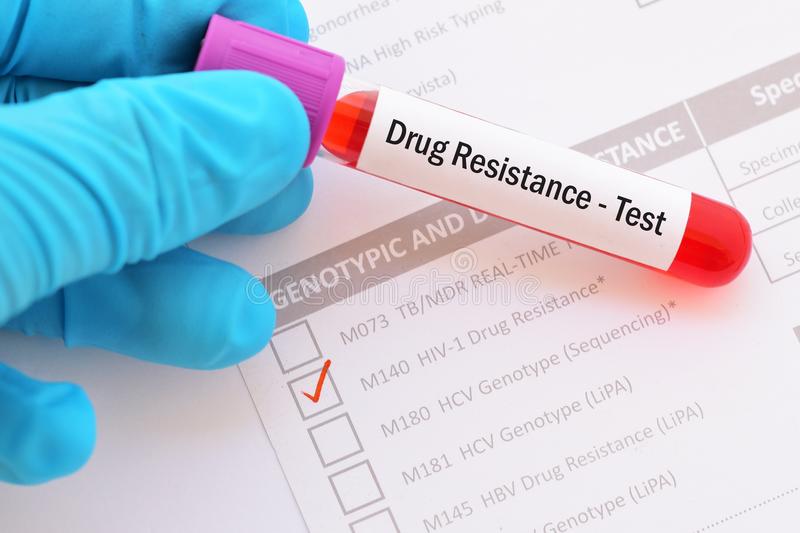HIV Drug Resistance
The Challenge: Comprehending HIV Drug Resistance and Its Effect on Therapy
Drug resistance is still a major obstacle in HIV treatment, despite the incredible advancements in this field. This blog post explores the topic of HIV medication resistance, outlining its causes, diagnostic techniques, and management implications.
Table of Contents

How Does Drug Resistance Develop in HIV?
HIV Drug Resistance
HIV is a highly mutable virus that is crafty. This indicates that the virus replicates itself continuously, and that mistakes, or mutations, may happen in its genetic coding during this process. A few of these alterations might influence how sensitive the virus is to particular antiretroviral medications.
- Viral Replication and Mutation: Antiretroviral drugs work by focusing on a particular stage of the virus’s replication cycle. On the other hand, a mutation in the drug’s target viral genes could make the therapy less or completely ineffective.
- How to Choose Resistant Strains: Drug-resistant strains of the virus may eventually take over the body if a patient stops taking their antiretroviral therapy (ART) on a regular basis, thereby allowing the virus to multiply.
The Factors That Lead to Drug Resistance
HIV Drug Resistance
The following are some of the variables that may lead to HIV medication resistance:
- Poor ART Adherence: The virus has more possibilities to multiply and become resistant when dosages are skipped or drugs are not taken as directed.
- Incomplete Suppression: Drug-resistant strains may form if patients don’t take their medications as prescribed or if the viral load isn’t reduced to undetectable levels.
- Using Expired Drugs: Drugs that have expired may be less effective, which could allow the infection to continue spreading even in the face of therapy.
- Taking Medication Without a Prescription: Using antiretroviral medications for self-medication poses a risk and raises the possibility of resistance.
Analyzing Drug Resistance: Finding the Weaknesses of the Enemy
HIV Drug Resistance
For the purpose of customizing treatment plans and preserving efficient viral suppression, early diagnosis of medication resistance is essential. The two primary forms of drug resistance testing are as follows:
- Testing for Genotypic Resistance: In this test, viral RNA is analyzed to find mutations linked to drug class resistance. It aids in forecasting which drugs may be less successful.
- Testing for Phenotypic Resistance: This test gauges the virus’s capacity to proliferate in the presence of several antiretroviral medications. Although it is more straightforward in terms of providing information on drug susceptibility, its complexity and expense make it less popular.
How Does Treatment Affect Drug Resistance?
HIV Drug Resistance
HIV medication resistance might complicate HIV management. How to do it is as follows:
- Restricted Treatment Options: The range of drugs that can be used to treat the virus shrinks if it develops resistance to particular drug classes.
- More Complicated Regimens: The course of treatment may entail the use of several different drug classes, frequently with more complicated dosage regimens and possibly more adverse effects.
- Decreased Effectiveness of ART: HIV that is resistant to drugs may not be suppressed as well, which raises the risk of consequences and results in a higher viral load.
Managing HIV while Preventing Drug Resistance
HIV Drug Resistance
Drug resistance is a problem, however you can reduce the risk by doing the following:
- Strict Adherence to ART: It’s important to take prescription drugs exactly as directed.
- Frequent Monitoring: Early detection of any issues is made possible by routinely measuring the viral load and CD4 cell count.
- Honest Communication with Medical Professionals: Share with your healthcare professional any worries or difficulties you are having adhering to your regimen.
- Never Miss a Meeting: Frequent checkups guarantee appropriate monitoring and, if needed, modifications to your treatment plan.
HIV Drug Resistance
Drug resistance does not imply that there are no therapeutic alternatives. Medical professionals can create several treatment regimens with drugs that work and that the virus can still withstand.
Managing Your Health with HIV
Even with drug resistance, you can effectively manage HIV and live a long and healthy life by following your recommended treatment plan, going to appointments on time, and keeping lines of communication open with your healthcare practitioner.


